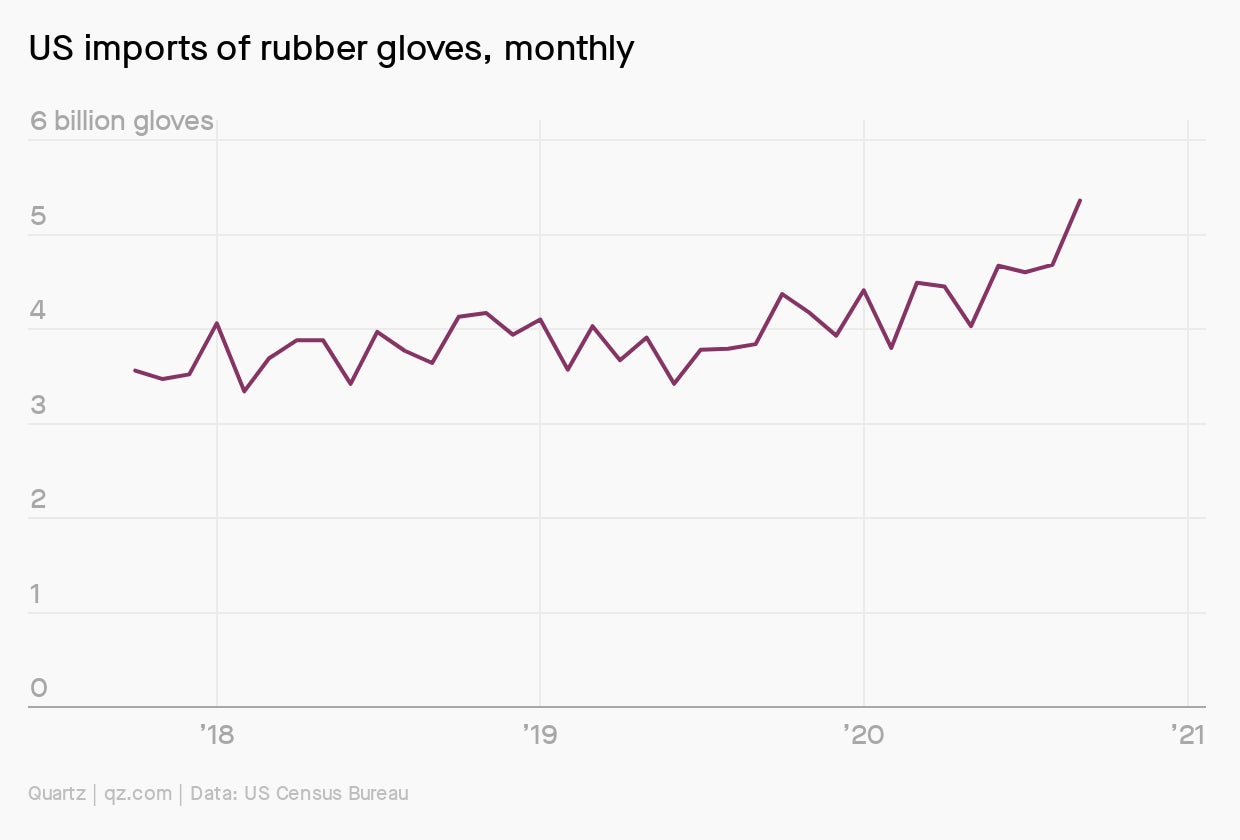Corbyn’s back, Boeing 737, glowing platypus
Good morning, Quartz readers!

Good morning, Quartz readers!
Here’s what you need to know
The British Labour party reinstated Jeremy Corbyn. Less than three weeks after the former party leader’s dismissal over comments made regarding a report on anti-Semitism, he was readmitted as a member. The decision sparked outrage from Jewish leaders.
Boeing’s 737 could get a timetable to return to the skies. The US Federal Aviation Administration could give its final approval of the aircraft today, and unground the plane if it’s satisfied with how the plane maker has addressed safety issues following two fatal crashes that killed 346 people.
Donald Trump fired his top election security official. The sacking of Christopher Krebs may have been in retaliation for contradicting, on an official election factcheck website, the president’s claims of widespread voting fraud. Separately, the US Senate blocked Trump Fed nominee Judy Shelton, known for her unorthodox views, after at least three Republicans joined Democrats to oppose her.
Thailand’s parliament votes on protesters demands. Yesterday, the country saw some its most violent clashes since the protest movement began as the legislature considers demands for constitutional reforms. Democracy activists are also calling for changes to the monarchy, and the prime minister to step down.
A US rare earth miner’s comeback
The New York Stock Exchange will feature a new company today: MP Materials, a producer of rare earths—a group of 17 minerals critical to many high-tech products. Behind its ticker, MP, is a tale of the American rare earth industry’s erstwhile dominance, how it ceded that to China, and the US’s attempts to regain it.
MP is the owner of the Mountain Pass rare earths mine in California. The mine was shuttered in 2002 and its previous owner went bankrupt in part due to pressure from China’s low prices. Wary of being reliant on China for critical minerals, the US wants to rebuild its domestic rare earths supply chain. MP is part of that effort.
But being independent from China is no simple task. For one thing, MP is minority-owned by a Chinese firm, and is largely dependent on Chinese customers for its revenue. Mary Hui explains why the US wants to tackle China’s rare earths dominance, and the challenges ahead.
The most retailful time of the year
👗 Secondhand is king. The reselling industry is growing at a rate that should make fast fashion nervous, but it could just be another way to encourage excess consumption.
🔮 No one can foretell holiday shopping predictions this year. With no precedent to guide them, the only thing analysts agree on is that ecommerce better be ready.
🙂 But Walmart has hopes for Joe Biden. CEO Doug McMillon just wants everyone to move on and get shopping—hopefully powered by a new stimulus bill.
Charting rubber demand
After a low in April, rubber has bounced back, buoyed by a depressingly strong demand for surgical gloves as the Covid-19 pandemic rages on. US Census data show the number of rubber gloves imported into the US rose 57% to 244 million pairs in the third quarter. Imports of all rubber gloves rose 28% to 14.6 billion pairs in the same period.

It’s not just gloves—tires are where the rubber meets the road, and new tires come standard with every new car. China’s automobile market is making up for lost time, while many Americans are favoring cars over public transit.
Birth of the cool
“Cool” is one of those overused words whose definition has become fuzzy around the edges. Shoppers chase it, companies try to sell it, and generally speaking it indicates something positive, but with a range of connotations including stylish, original, authentic, rebellious, and more.
Originally, though, it had a slightly different meaning. Jazz musician Lester Young coined this usage of cool, unrelated to temperature, in the late 1930s. “When Young said, ‘I’m cool’ or ‘that’s cool,’ he meant ‘I’m calm,’ ‘I’m OK with that,’ or just ‘I’m keeping it together,'” professor and author Joel Dinerstein wrote in his book The Origins of Cool in Postwar America. The modern equivalent might be more like “chill.” For jazz musicians throughout the 1940s and 1950s, this attitude would translate into a sound marked by relaxed intensity and an emphasis on expressing one’s personal style.
To understand this early concept of cool, there’s no better method than listening to it. We asked Dinerstein to create a playlist for Quartz, and he put together a list of tracks representing the original sound of cool as it first evolved in jazz. Listen to it while you read our field guide to the new meaning of cool.
✦ When we say Quartz membership is cool, we mean it just like it sounds. Try a seven-day free trial.
Surprising discoveries
A shy Princess Diana from The Crown is now a meme. People are finding Emma Corrin’s re-enactment of the bride-to-be in the Netflix series’ newest season very relatable.
People discovered a “road of bones” in Siberia. The remains may date back to Russia’s 1917-22 civil war.
The young Barack Obama read Foucault and Marcuse to pick up girls. So goes the former US president’s recollection of his college years in his new memoir, A Promised Land.
The platypus just keeps getting stranger… The venomous egg-laying mammal also glows under a blacklight.
…and there’s a baby seal boom in Norfolk. England’s Blakeney Nature Reserve expects a record-breaking 4,000 grey seal pups to be born this winter.
Our best wishes for a productive day. Please send any news, comments, royal memes, and pick-up books to [email protected]. Get the most out of Quartz by downloading our iOS app and becoming a member. Today’s Daily Brief was brought to you by Mary Hui, Tripti Lahiri, Liz Webber, and Susan Howson.